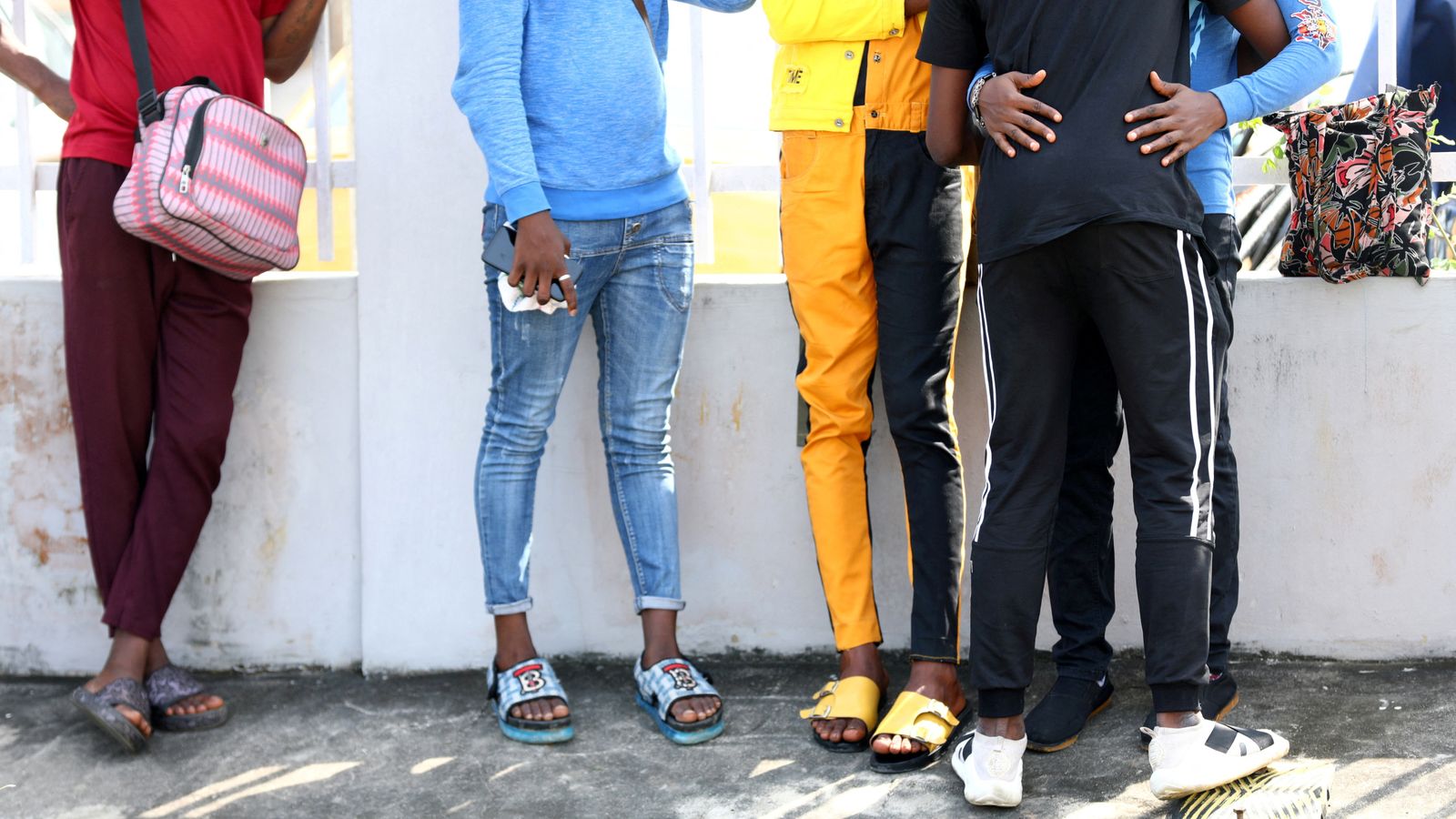Sixty-nine people arrested after Nigerian police raided an alleged gay wedding have been released on bail.
They were arrested last month in one of the biggest mass detentions targeting homosexuality in Nigeria, where gay weddings are illegal.
A court in Warri, Delta state, ruled on Tuesday that those being held would be freed after each posting 500,000 naira (£520) bail. State prosecutors opposed the move.
The detainees, who did not appear in court, were also ordered to sign a register once a month until their next hearing, according to their lawyer Ochuko Ohimor.
The arrests happened after a tip-off in a police interrogation of someone who allegedly knew about the event, police said.
Officers stormed a hotel in Ekpan where the alleged gay wedding was being held and initially arrested 200 people.
Be the first to get Breaking News
Install the Sky News app for free
Police spokesman Edafe Bright said at the time: “The policemen chased and arrested… suspects both male and female for allegedly conducting and attending a same-sex wedding ceremony.”
The spokesman added that homosexuality “will never be tolerated” in Nigeria.
Amnesty International’s Nigeria office condemned the arrests and called for “an immediate end to this witch hunt”.
Read more:
Rishi Sunak apologises to LGBT veterans
Barbie movie banned in Kuwait
Click to subscribe to the Sky News Daily wherever you get your podcasts
Nigeria brought in an anti-gay law in 2014 and generally sees homosexuality as immoral on cultural and religious grounds. Some other countries in Africa also share these views.
The legislation in Nigeria includes a prison term of up to 14 years for those convicted under the Same Sex Marriage Prohibition Act, and bans gay marriage, same-sex relationships, and membership of gay rights groups.
Cross-dressing is not illegal but tends to not be socially acceptable.
Uganda’s death penalty for ‘aggravated homosexuality’
In May, Uganda’s President Yoweri Museveni signed into law anti-gay legislation supported by many in the East African country but condemned by rights activists.
The bill does not criminalise those who identify as LGBTQ+, but prescribes the death penalty for “aggravated homosexuality”.
This is defined as cases of sexual relations involving people infected with HIV, as well as with minors and other categories of vulnerable people.
Someone convicted of “attempted aggravated homosexuality” can be imprisoned for up to 14 years.










